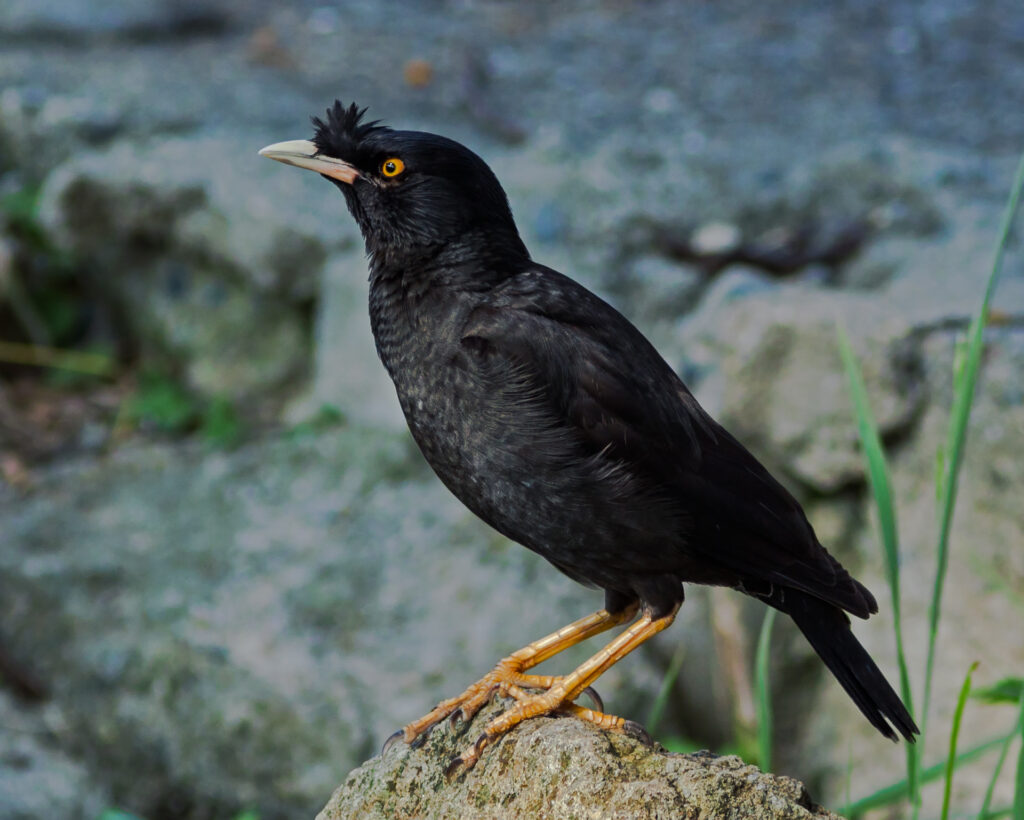There are all kinds of reasons for the common names birds have. They are named after people (Baird’s Sandpiper, for instance), places (Carolina Wren), physical description (Purple Finch), voice (Chachalaca), and behavior (dipper). Sometimes they are misleading, like the Red-bellied Woodpecker whose belly is really pinkish and the Ring-necked Duck whose ringed neck is very difficult to see in the field.
Let’s look at some other inappropriate names. How about the Palm Warbler, 98 percent of which breed in the boreal forests of Canada? It was named based on a specimen collected in the winter on Hispaniola, a Caribbean island with a lot of palm trees. The Australian Magpie is not a magpie and not even in the same family. The Western and Eastern Meadowlarks are not larks (Alaudidae) but members of the blackbird family (Icteridae). And then we have the finches which actually belong to several different families.

The International Ornithological Committee has created a World Bird List that applies an English common name to every bird in the world. It is a good overview but is not official or totally agreed upon by the world’s ornithologists. Scientific names are strictly regulated by the International Code of Zoological Nomenclature but the procedure for assigning common names do not follow any strict rules.
The Old Squaw, an unkind name to say the least, was changed to Long-tailed Duck. Ornithologists and birdwatchers are concerned about other names that are insulting or honor less than honorable people. There is paper you may wish to consult, entitled Toward redressing inaccurate, offensive, and inappropriate common bird names, published in the Ibis in 2021. The paper “highlight(s) formal efforts by ornithological societies around the world to change common names of birds to better reflect the diverse perspectives of scientists in the 21st century.”
The push to change the names of birds who are named after people is because, 1) it’s not a very descriptive name and 2) some of these people after whom the bird was named turn out to be rather unsavory characters – owned slaves, for example.
Bird Names for Birds is a grassroots organization started after a May 2020 incident in Central Park that received nationwide coverage. Christian Cooper, a Black birder, was watching birds in the park when a woman called the police and falsely claimed he was threatening her after Cooper asked her to keep her dog on a leash. The organization wants to change the names for roughly 150 birds in North America, including species such as Scott’s Oriole and Steller’s Jay. The goal is to change all eponymous bird names — those after whom a discovery is named or in honor or someone. Many of these birds were named during the colonial period, and Bird Names for Birds has collected extensive biographies on the individuals they’re named after.
In all the years I have been studying birds I always seem to be behind the curve when it comes to names. The Plain Titmouse became Oak and Juniper titmice, the Western Scrub Jay became the California Scrub Jay, the Sedge Wren split off from the Grass Wren, and the Mew Gull became the Short-billed and Common Gulls. Seems like I’m always trying to keep up with this stuff. And now some bird watchers want to change 150 names?
Oh dear. And here I thought that if we retreated into Nature and the natural world, that we would leave the cancel culture. Guess not. Everything has to be politically correct, even birds’ names. ??. Those who want to change everything seem to follow us even into the wild.
Oh well.
I guess we need to retreat into the official taxonomy,
The Latin names are still safe, although there is a notion to cancel that as well.
?